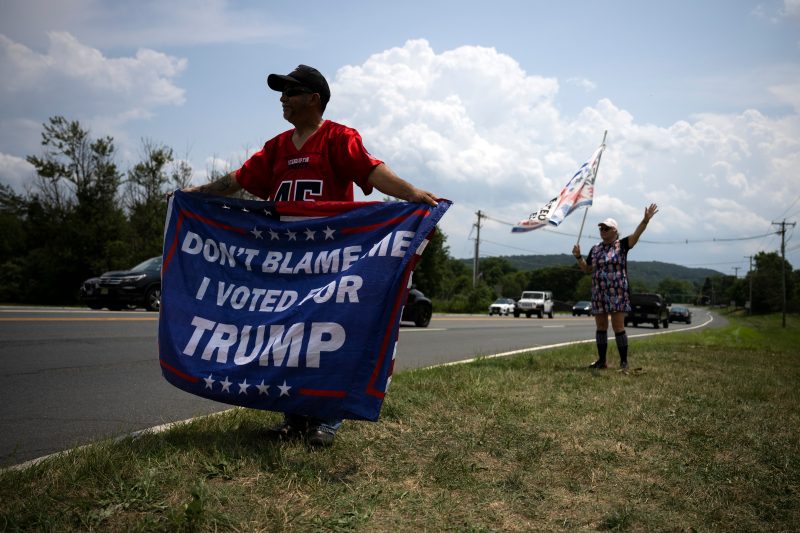
Trouble Ahead: America’s Divisive Politics Set to Persist Post-Trump Shooting
America’s Grievance-Fueled Politics: A Societal Phenomenon Here to Stay
The recent shooting incident involving former President Donald Trump has once again brought to light the deep-seated grievances that fuel American politics today. While the specifics of the incident are still under investigation, the overall political climate in the United States is increasingly marked by polarization, animosity, and a sense of grievance that transcends party lines.
One of the key factors contributing to this phenomenon is the rise of social media and its role in shaping public discourse. Platforms like Twitter, Facebook, and YouTube have become battlegrounds for political ideologies, where individuals can easily find like-minded individuals to validate their grievances and amplify their voices. The echo chambers created by these platforms often lead to a reinforcement of extreme views, further dividing the population along ideological lines.
Furthermore, the traditional media landscape has also played a significant role in fostering grievance-fueled politics. Cable news channels and online publications cater to specific political audiences, providing biased coverage that reinforces existing beliefs and perceptions. This selective exposure to information has contributed to the erosion of trust in mainstream media sources, leading many Americans to seek out alternative sources that align with their preconceived notions.
The current political landscape is also marked by a sense of victimhood on both sides of the aisle. Liberals view themselves as victims of systemic oppression and inequality, while conservatives see themselves as victims of political correctness and cancel culture. This victim mentality has led to a culture of outrage where any perceived slight or offense is met with extreme reactions and calls for retribution.
The phenomenon of grievance-fueled politics is not unique to the United States. Countries around the world are grappling with similar issues as they navigate the complexities of a rapidly changing global landscape. The rise of populism, nationalism, and identity politics has created a fertile ground for grievances to take root and flourish, leading to increased polarization and social instability.
Moving forward, it is crucial for American society to address the underlying causes of grievance-fueled politics and work towards building a more inclusive and empathetic political culture. This will require a concerted effort to bridge the divide between conflicting ideologies, promote civil discourse, and foster a sense of national unity that transcends partisanship.
Ultimately, the prevalence of grievance-fueled politics in America is a reflection of deeper societal divisions and tensions that have been brewing for decades. While the road to reconciliation may be long and arduous, it is essential for the health and stability of the nation that we confront these issues head-on and work towards a more harmonious future for all Americans.
